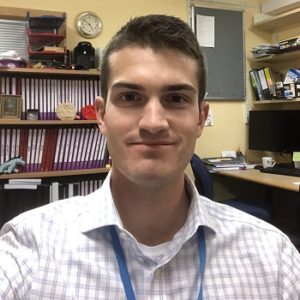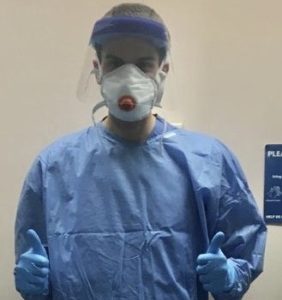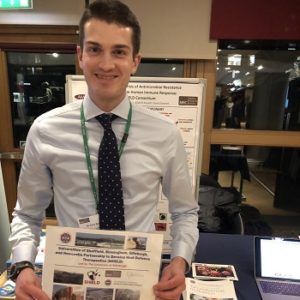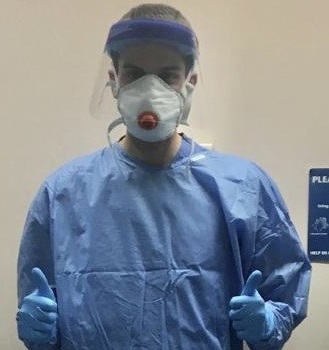 Clark Russell hails from the MBChB Class of 2013. He’s a doctor training in infectious diseases and microbiology.
Clark Russell hails from the MBChB Class of 2013. He’s a doctor training in infectious diseases and microbiology.
Prior to the COVID-19 pandemic, he was undertaking scientific training through a PhD in immunology as part of the Edinburgh Clinical Academic Track. Now he’s put his PhD on hold and is working both on a clinical characterisation study of COVID-19 and a scientific study of Covid-19 pathogenesis.
What you’ve been up to since graduation?
After graduating I did my foundation then core medical training in Edinburgh and Fife before starting speciality training in infectious diseases and microbiology. I am a Clinical Lecturer on the Edinburgh Clinical Academic Track which allows me to spend some time doing research and receiving scientific training through a PhD in addition to my clinical training.
 Why did you choose this career path?
Why did you choose this career path?
During medical school I did my intercalated year in Infectious Diseases – not because I was especially interested in infection at that time but because the scientific elements of the programme were closely aligned to clinical medicine. I greatly enjoyed learning about the diversity of human pathogens, multi-organ manifestations of infectious disease, and the most interesting organ – the immune system. I also benefited from a very supportive and enthusiastic project supervisor, and from then on was fairly set on pursuing clinical and scientific training in infection.
My short career in infectious diseases/microbiology so far has certainly lived up to what I hoped for: clinical work is varied, intellectually challenging and provides the opportunity to interface with colleagues from all specialities from surgery to general practice, intensive care and public health. My experience of research has also been rewarding, including developing skills in laboratory science and now clinical research during a pandemic.
What are your inspirations for the future?
Most importantly to learn how to take good care of patients with infectious diseases. Scientifically, I am interested in finding new ways to treat infections by fine tuning the way white blood cells eat and kill bacteria, as an alternative to relying entirely on antimicrobials.
I’m very fortunate for the support from Wellcome/ECAT in providing the mentorship, funding and training to allow me to pursue this. There are so many brilliant people working in infectious disease immunology that it seems fairly lofty to suggest this as an aspiration, but I hope over the course of my career to be able to make a small incremental contribution.
Any top tips or words of wisdom for current Edinburgh medical students?
My top tip would obviously be to train in infectious diseases and microbiology. It is a great speciality that seems to offer endless variety, job satisfaction and fantastic colleagues. The best advice I think I have received is the importance of always being nice to everybody. And certainly in my experience you will get a lot more done in both the clinical and research arenas if you try to stick to this.
Learn more about the ECAT programme



